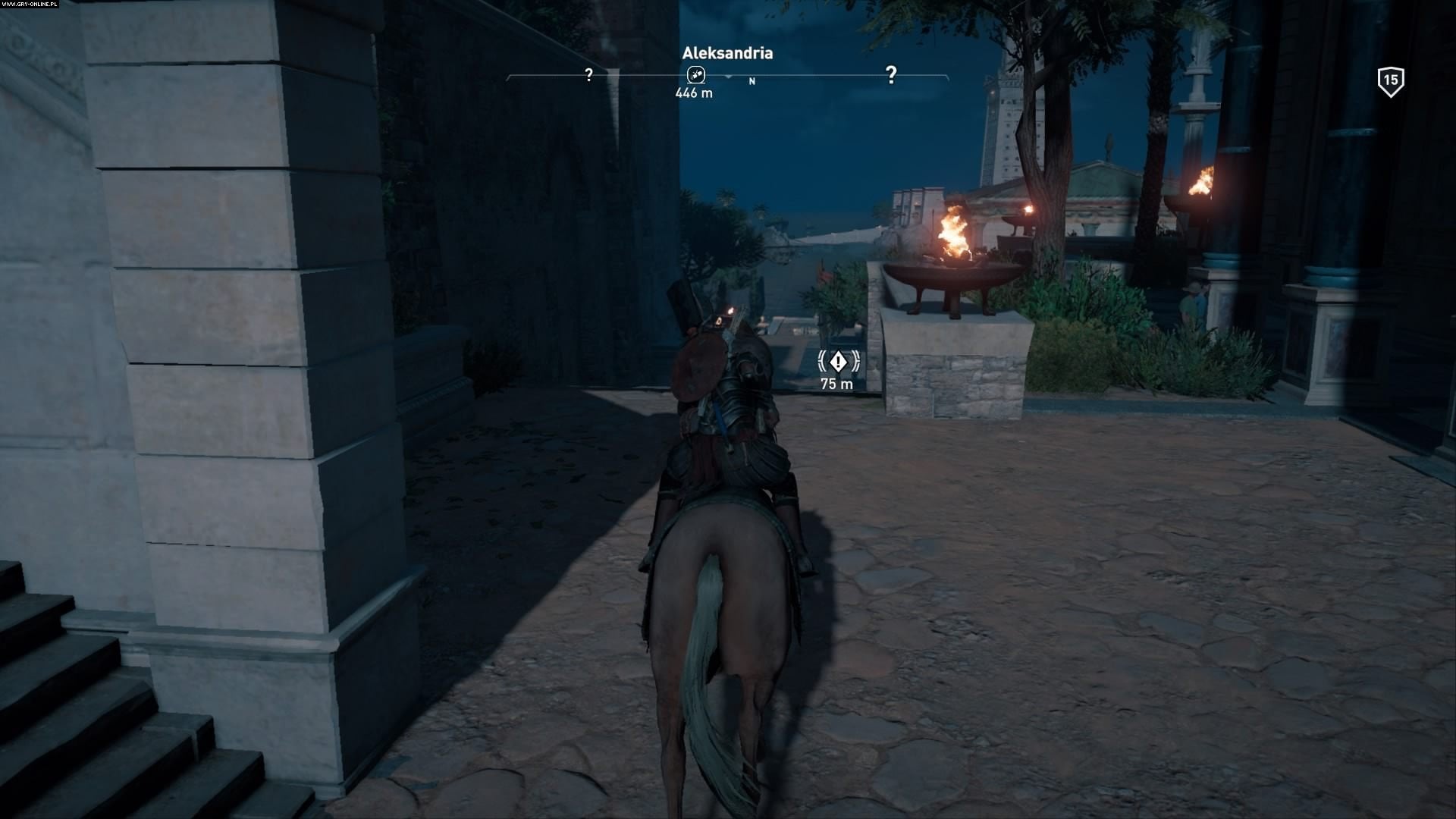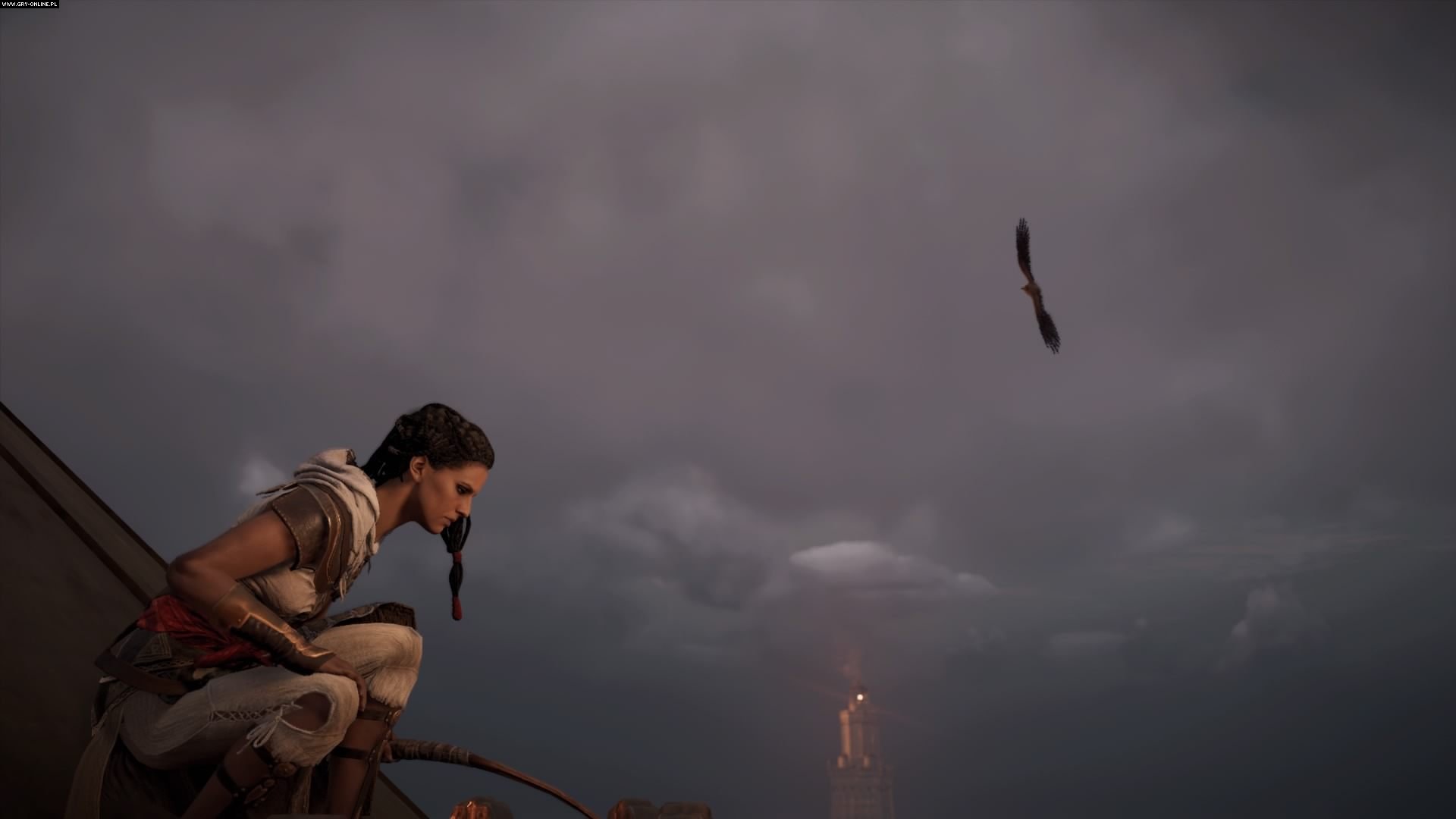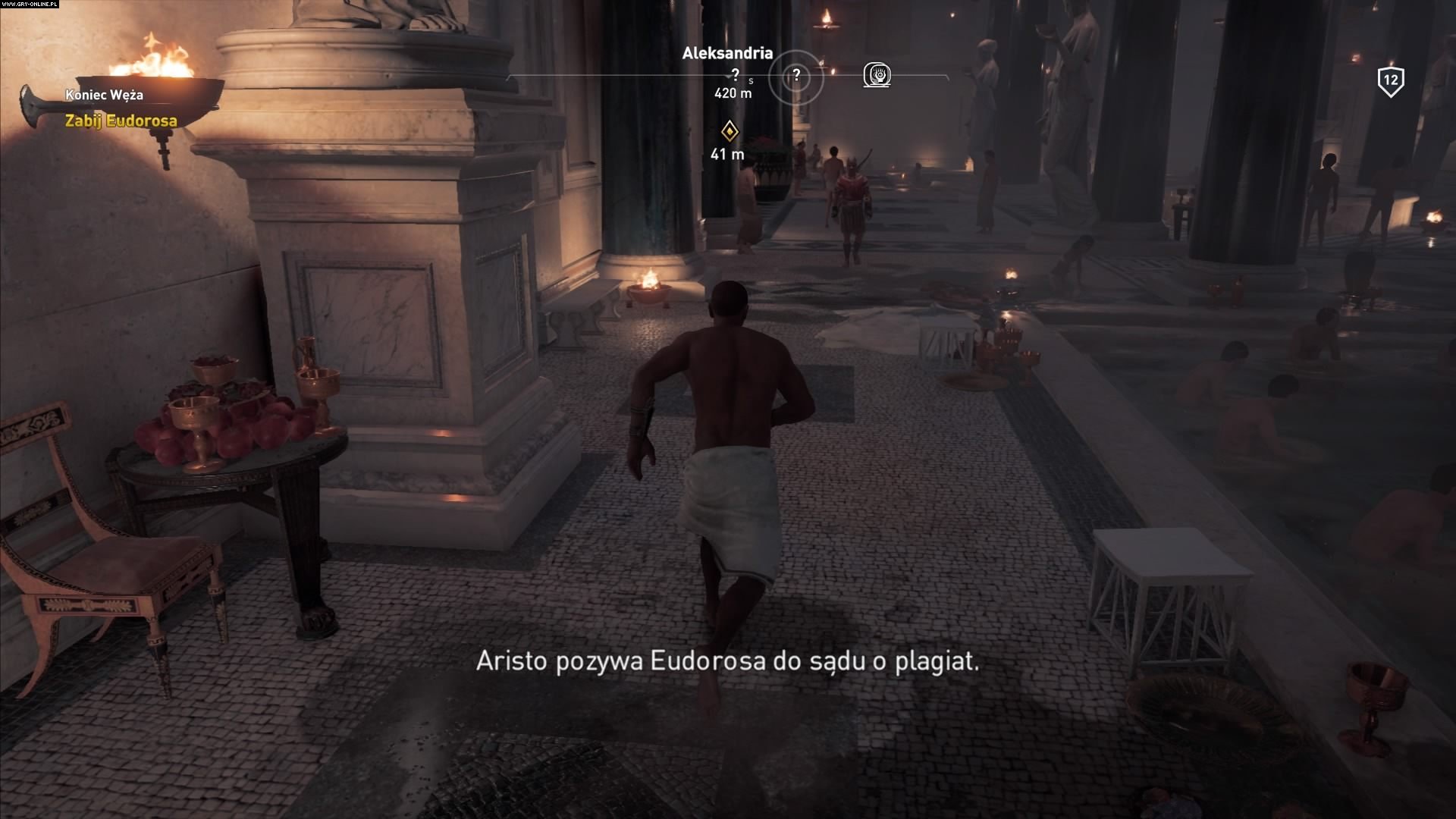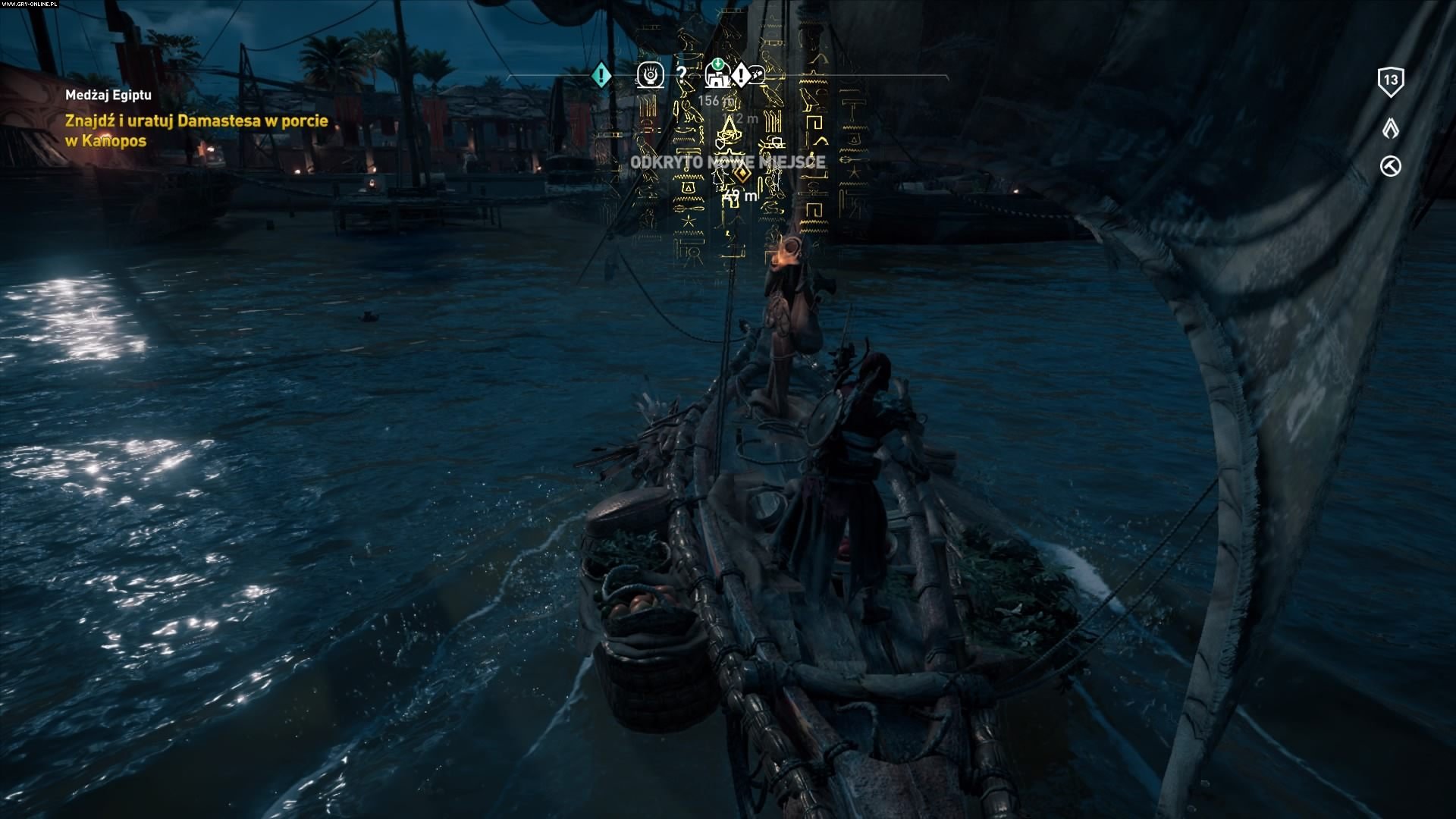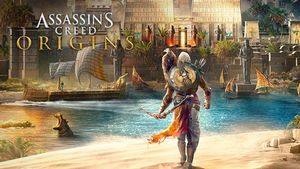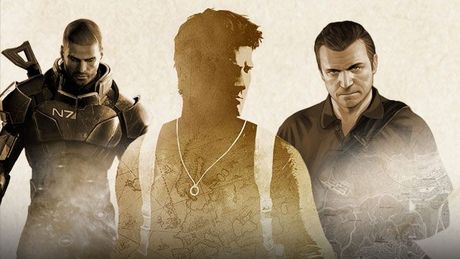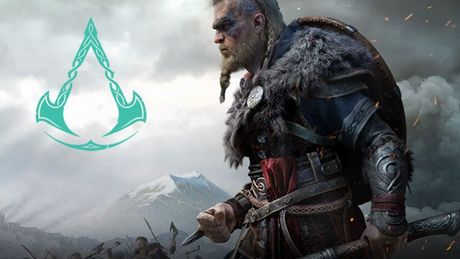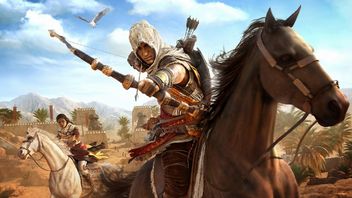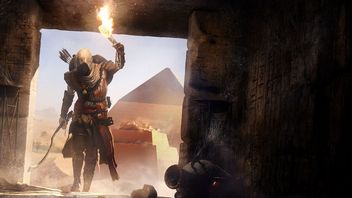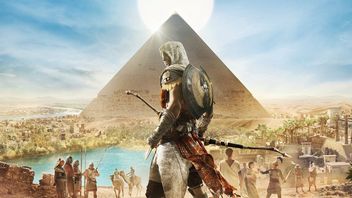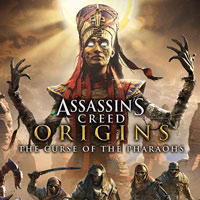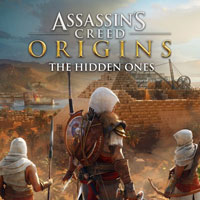Similarly to most of the previous installments in the series, apart from the historical part of the plot, there are also the elements taking place at the present times. Players get to uncover more secrets of the Abstergo Industries, which is only a cover for the organization fighting the Assassins - the Templars.
Mechanics
Assassin's Creed Origins for PC, PS4 and XONE gives at players' disposal an open world that in terms of its size matches the one featured in Assassin's Creed IV: Black Flag. The in-game world comprises cities (such as Giza, in which you can see both Pyramids and the Sphinx), oasis (such as Fajum and Siwa), and the Nile Delta. This time around, the map is not divided into sectors loaded during the game; this also regards the underwater bottom, where players can discover ruins and ship wreckages. An important aspect of the game is the exploration players can perform both afoot (once again, we can enjoy the free running system allowing us to climb the infrastructure and jumping between different constructions parkour style) and on the back of a steed - either a horse or a camel. Moreover, the game also offers the opportunity to ride a chariot and travel onboard boats.
The in-game world is inhabited by wild animals (Bayek can domicile them and, if necessary, use their help in combat) as well as NPCs (for the first time in the series, their life is subject to the day and night cycle and their unique duties). These neutral characters are the ones that assign story and side quests that propel the game. In comparison to the missions from the previous installments, the ones in the game described herein feature a much more open structure.
Other changes include the combat mechanics. The developers have abandoned the formula based on spectacular counterattacks and implemented dodging, blocking the enemy blows with a shield, and using moments when enemies put their guard down. Moreover, the attacks have been divided into two categories: light attacks can be used when fighting weaker opponents, while the heavy blows are most effective against armored enemies (including bosses). Additionally, after filling the special adrenaline bar, Bayek can mount a destructive attack able to knock down even the strongest foes. The main protagonist gets at his disposal diversified weapons – these include cold steel for close combat (axes, bats, swords, daggers, and clubs) as well as ranged weapons (several types of bows). Similarly to the previous installments, the main protagonist can perform sneak attacks with his hidden blade and use gadgets such as smoke grenades. What is worth noticing, the pieces of equipment can be upgraded thanks to the elaborate crafting system.
The clear RPG elements include also the character development system. On their adventure, players earn experience points and level up their characters by purchasing new skills from the character development tree. These skills are divided into three groups representing their own preferences: Master Warrior includes talents regarding close combat, Master Hunter allows players to master archery and stealth elimination of the enemies, Master Seer regards tools utilized by Bayek and his ability to manipulate the environment. Somewhat above these groups, there is also Senu, a domiciled eagle, and Bayek's faithful companion. Players can dispatch the bird for reconnaissance (allowing them to familiarize themselves with the landform and enemy locations). By developing Senu's abilities one increases the chances of spotting the enemies and distracting them.
Technical aspects
Assassin's Creed Origins has been based on AnvilNext 2.0 technology - a new version of the proprietary graphics engine, which allowed the developers to significantly improve the game's visuals. Players are bound to appreciate the detailed surroundings along with rich character animations. As befits an Assassin's Creed game, on their adventures, players are accompanied by a great soundtrack.

![[1:02] launch trailer - Ancient Egypt awaits (PL)](https://cdn.gracza.pl/galeria/filmy/640x360/510666012.jpg)
